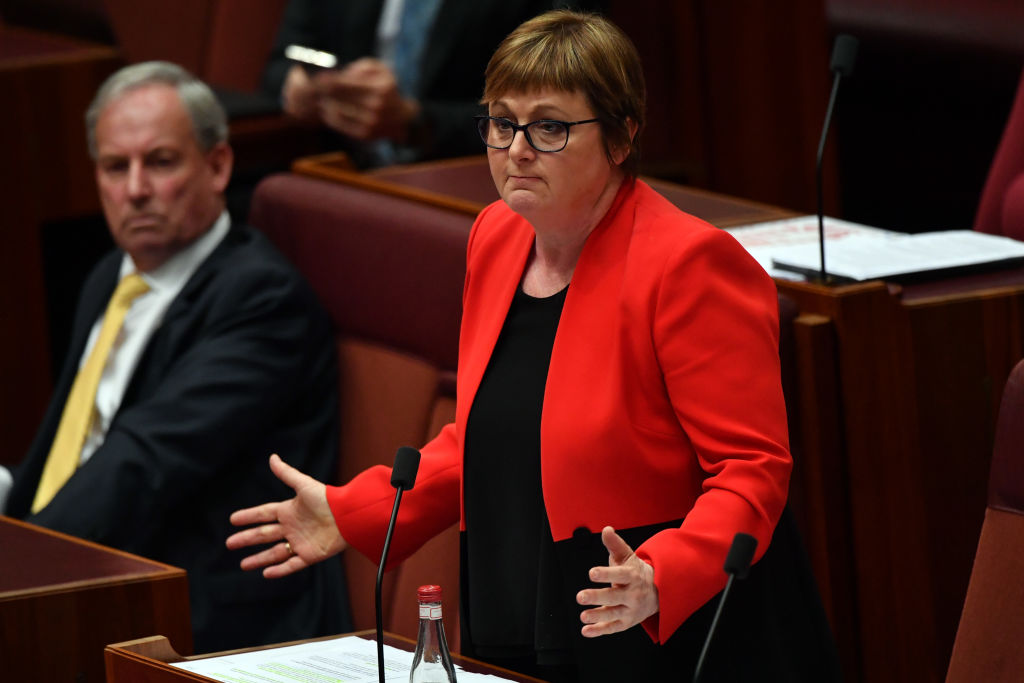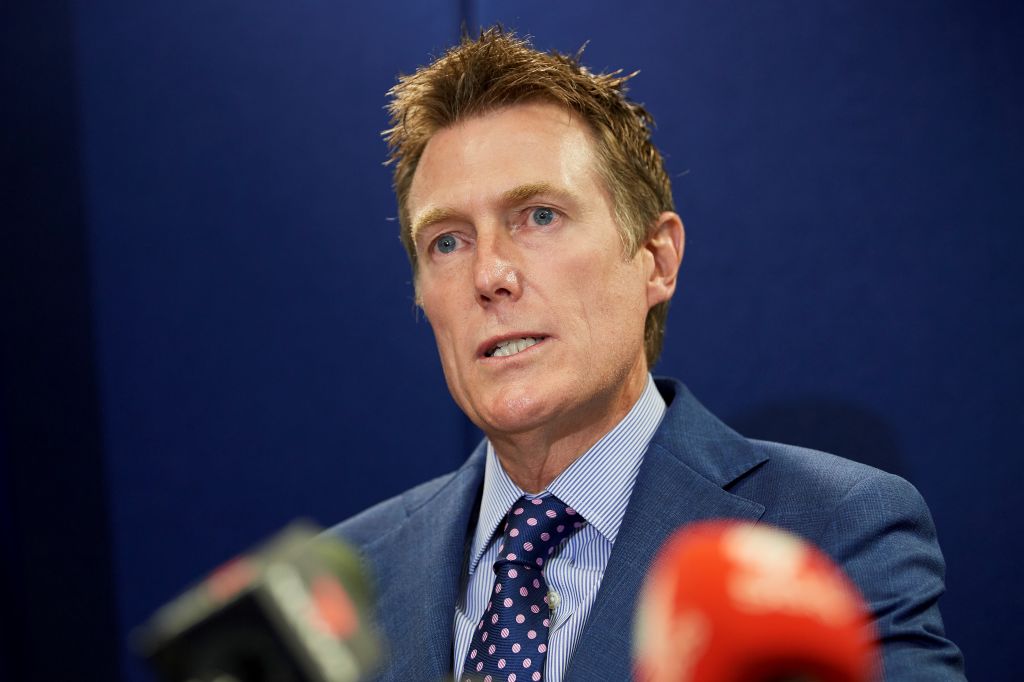When Janine Hendry started a Facebook group to protest against sexism and sexual misconduct at Australia’s parliament, she figured just a few of her friends might turn up.
But her plans snowballed quickly. More than 30,000 people have joined the March 4 Justice group organizing demonstrations on March 15. Women are planning events in more than 30 cities across the country, including the capital Canberra.
“This is my very first revolution,” the 58-year-old creative arts consultant tells TIME from Melbourne. “I know that someone had to take a stand and it just happened to be me.”
The catalyst for the protest was the Feb. 15 allegation by Brittany Higgins, a former staffer for government minister Linda Reynolds, that she was raped by a male staffer in the minister’s office in 2019. The response by Prime Minister Scott Morrison’s conservative government has been perceived as callous and halfhearted by many women.
Furious women across Australia are now opening up with their own experiences of sexism, sexual harassment and sexual abuse. And it’s begun conversations about inherent discrimination and mistreatment of women—both within the halls of Australian government, and across the wider society.
“I don’t think I’ve ever experienced a period in Australian politics where women, and I include myself in this, have been so personally distressed,” says Sarah Maddison, a professor of politics at the University of Melbourne.
Rape allegations rock the government
Higgins said that after her colleague raped her, she decided not to pursue a police complaint because she felt pressured not to and feared losing her job. But she changed her mind in January when Morrison presented the Australian of the Year award to Grace Tame, a sexual assault survivor who successfully campaigned to change a law that barred her and other survivors from speaking out.
Higgins’ allegations prompted an apology from Morrison over how her complaint was handled at the time and he ordered an investigation into the government’s workplace culture. But he sparked anger when he said that it had taken a conversation with his wife to get clarity on the situation. “She said to me, ‘You have to think about this as a father first. What would you want to happen if it were our girls?’” he said on Feb. 16 while speaking to the press.”
That prompted a reporter to ask him: “What would happen if men don’t have a wife and children? Would they reach the same compassionate conclusion?”

Another senior government official drew criticism for referring to the rape allegations as a “he said, she said” situation, and Higgins’ former boss Reynolds, now the Defense Minister, called Higgins a “lying cow” in front of Reynolds’ staff after the allegations became public. Reynolds, who is on leave for mental health reasons, has since apologized and agreed to pay agreed to pay damages for defamation.
Four women have now come forward with allegations of sexual misconduct against the same man, whose name has not been publicly released.
Morrison’s government is also under pressure to investigate a decades-old rape allegation against Attorney General Christian Porter. The woman’s friends to wrote a letter to Morrison in February alleging that he had raped her in 1988 when she was 16. The woman had made a complaint to the New South Wales police in February 2020, but did not provide a formal statement. She died by suicide in June at the age of 49. Police have said they are dropping their investigation due to “insufficient admissible evidence to proceed.”
A visibly emotional Porter denied the allegations in a March 3 press conference, before saying that he would take leave for his mental health. Morrison has so far rejected calls for an independent inquiry. On March 10, Morrison said that Porter is “an innocent man under our law.”
Calls to protest the government swelled in part because women fear that the allegations will not result in changes, says Jacqui True, the director of Monash University’s Centre for Gender, Peace and Security.
“Many women and men are angry at the ignorance, neglect and failure of the federal government to address a growing reality of egregious sexual abuse and violence against women perpetrated by powerful men,” she says.

‘It isn’t only about rape’
Hendry, the protest planner, isn’t the only woman who found the government’s response to the allegations infuriating. “The extent to which Christian Porter painted himself as a victim in this situation… I think women around the country had their jaws on the floor,” says Maddison, the University of Melbourne professor.
There has been an outpouring of anger and emotion on social media. “For too long we have been dismissed and belittled by those with privilege, power and patronage,” tweeted Australian journalist Karen Percy. “It isn’t only about rape. It’s about misogyny, patriarchy and so much more.”
A continent away from the capital, Jane Underwood, a 52-year-old yoga teacher, plans to attend a march in Perth on Monday with her 73-year-old mother and her two daughters, who are in their 20s. She is motivated by sexism she has witnessed and experienced herself during her lifetime—including being catcalled and subjected to inappropriate comments in public and witnessing sexist attacks on Julia Gillard—Australia’s only female Prime Minister, who served from 2010 to 2013.
“It’s not just a small gathering of militant feminists, and it’s not just a small gathering of women who have been outraged or abused,” she says. “It’s all kinds of women trying to express that we’ve had enough.”
Read More: #MeToo and Time’s Up Founders Explain the Difference Between the 2 Movements — And How They’re Alike
Hendry says there is a groundswell of anger among women in Australia, not only about the government’s response to the allegations, but to the high level of inequality it has exposed. She plans to deliver a petition to parliament demanding accountability for the alleged misconduct in the halls of power and calling for structural changes to address gender equality.
Although Australia is one of the wealthiest countries in the world, it ranks 44 out of 153 countries in the World Economic Forum’s Global Gender Gap Index, with equality lacking in areas like political empowerment, health and economic participation and opportunity. (The U.S. ranks 53rd.) There are only 10 female CEOs at the top of Australia’s 200 biggest publicly traded companies, and women hold fewer than one third of board seats for those companies.
The #MeToo movement, which swept the globe in 2018, had limited impact in Australia because accusers must meet a high burden of proof in sexual harassment cases, and strict defamation laws make many wary of coming forward with accusations, says True of Monash University. One Australian actor won more than $2 million in defamation cases against tabloids after he was accused of sexual misconduct, an outcome which some deemed a blow to Australia’s #MeToo movement.
But many women, including Hendry, hope that the outrage that began with Higgins’ rape allegation will mark a watershed moment. “I have not seen the women of Australia this angry before,” she says. “But… that anger is actually being harnessed into something, which is going to create real change.”
More Must-Reads from TIME
- Donald Trump Is TIME's 2024 Person of the Year
- Why We Chose Trump as Person of the Year
- Is Intermittent Fasting Good or Bad for You?
- The 100 Must-Read Books of 2024
- The 20 Best Christmas TV Episodes
- Column: If Optimism Feels Ridiculous Now, Try Hope
- The Future of Climate Action Is Trade Policy
- Merle Bombardieri Is Helping People Make the Baby Decision
Write to Amy Gunia at amy.gunia@time.com